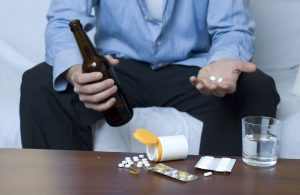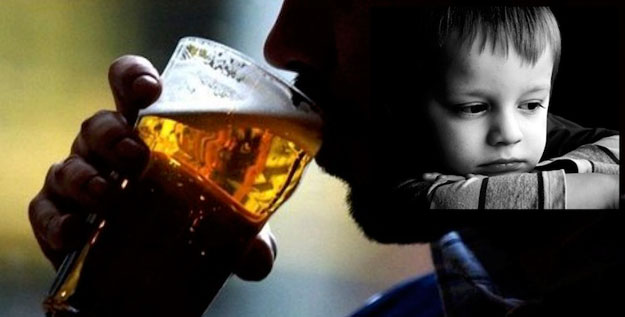Parental Drug Abuse Leads to Child Abuse & Neglect
A note from American SPCC:
In honor of National Drug and Alcohol Facts Week®, running from January 22-28, American SPCC is raising awareness of the devastating effects of drug addiction and the opioid crisis on our children.
America’s opioid crisis has been declared a national public health emergency. It is now more important than ever that we face and conquer this crisis, which has led to a dramatic increase in child neglect, abuse and placement into the foster care system.
We encourage you to join us as we recognize this growing epidemic, and encourage a positive and hopeful drug-free future for all children and youth in America.
www.narconon.org
How Children are Affected by Drug Addicted Parents
With over 30 million Americans currently struggling with substance abuse or alcoholism, it is shocking to remember the byproduct and repercussions of such a deadly epidemic. Economically, at a state and federal level, the price of addiction manifests through lost productivity and other devastating ways. Fatalities, traffic accidents and injuries related to substance abuse take thousands of lives each year, not to mention the accidental overdoses that occur more frequently amongst prescription drug addicts.
Despite all these tragic losses that result from substance abuse, the most saddening byproduct of substance abuse is the neglect, abuse and maltreatment of children whose parents are addicted to drugs.
Because addiction and alcoholism alter perception and reality very frequently, children of parents who are chemically dependent are not uncommonly found to be put in harm’s way, neglected or otherwise abused.
Some of these cases are likely to seek professional detox help from the authorities. Also, these same children often witness domestic violence in their homes from parents who may be under the influence of drugs or alcohol. These experiences can have a severe negative impact on children, resulting in emotional and psychological trauma that can last a lifetime.
Child Abuse Clearly Defined
The terms and circumstances, which define child abuse and neglect, are clearly defined at a federal level. According to the Child Abuse Prevention and Treatment Act, the mistreatment of children is defined as:
Any recent act or failure to act on the part of a parent or caregiver, which results in death, serious physical or emotional harm, sexual abuse or exploitation, or an act or failure to act which presents and imminent risk of serious harm.
What could this mean in the case of children put in danger by way of drug abuse in the home? While even just exposing children to dangerous and illegal drugs could easily be considered maltreatment, additional abuse or neglect may manifest in any of the following ways:
* Violence or verbal abuse resulting from being drunk or high
* Sexual abuse or behavior which makes a child feel uncomfortable
* Forcing a child to hide an adult’s drug abuse or alcoholism
* Consistently leaving a child alone at home
* Consistently ignoring a child or their needs; lack of attention
The Long Term Effects of Childhood Exposure to Drug Use
Studies exist and have been completed which focus on the long-term effects of substance abuse on the youth who are present. A shocking number of currently detained prison inmates and rehab attendees admit they had a tumultuous upbringing, having experienced some sort of neglect, or physical, sexual or verbal abuse. Further, these individuals were aware of criminality or substance abuse in their environment, setting a powerfully negative example for such youth.
It is wholly observable that children who grow up amongst drug abuse, alcoholism and criminality tend to join into these activities. This creates something of a cyclic trend, making those children who are born into underprivileged homes and neighborhoods more likely to remain ‘in the system’ than those children who are born of better circumstances with attentive, drug-free parents.
Breaking the Cycle; What Can I Do
As we look at analyzing how drug-addicted parents affect children, we conclude that the most important focus of this issue is breaking the cycle of substance abuse amongst youth. Many youth have entered into drug and/or alcohol abuse paths of their own, largely due to their exposure to such activities as a young child. However, this cycle can be taken apart and the course of youth lives can be changed.
* Support local children and family centers; these groups offer a safe environment and supportive care to children when parents are unable to.
* Demand drug education in all schools in your area; although drug prevention begins in the home, having preventative education at a young age continues to be an effective way to keep kids off drugs.
Source: https://www.childwelfare.gov/pubs/usermanuals/substanceuse/chapterthree.cfm
American SPCC encourages parents, caregivers, teachers, and adults to maintain healthy relationships and open communication with their children. This can intercept potential dangers before they happen. Talk to your kids!
If you suspect a child is the victim of parental drug addiction or is being abused or neglected, trust your instincts and report it. You may save a child’s life, or save them from being inflicted with further harm.
![]()
Call: 1-888-733-5032
Email: info@addictionguide.com
If you see something, please say something.
Click here for additional help resources.
American Society for the Positive Care of Children is giving a voice to those who have been overlooked for too long.…the children. With your help, we’re making sure that each generation has a better chance at a brighter future than the one before it.

